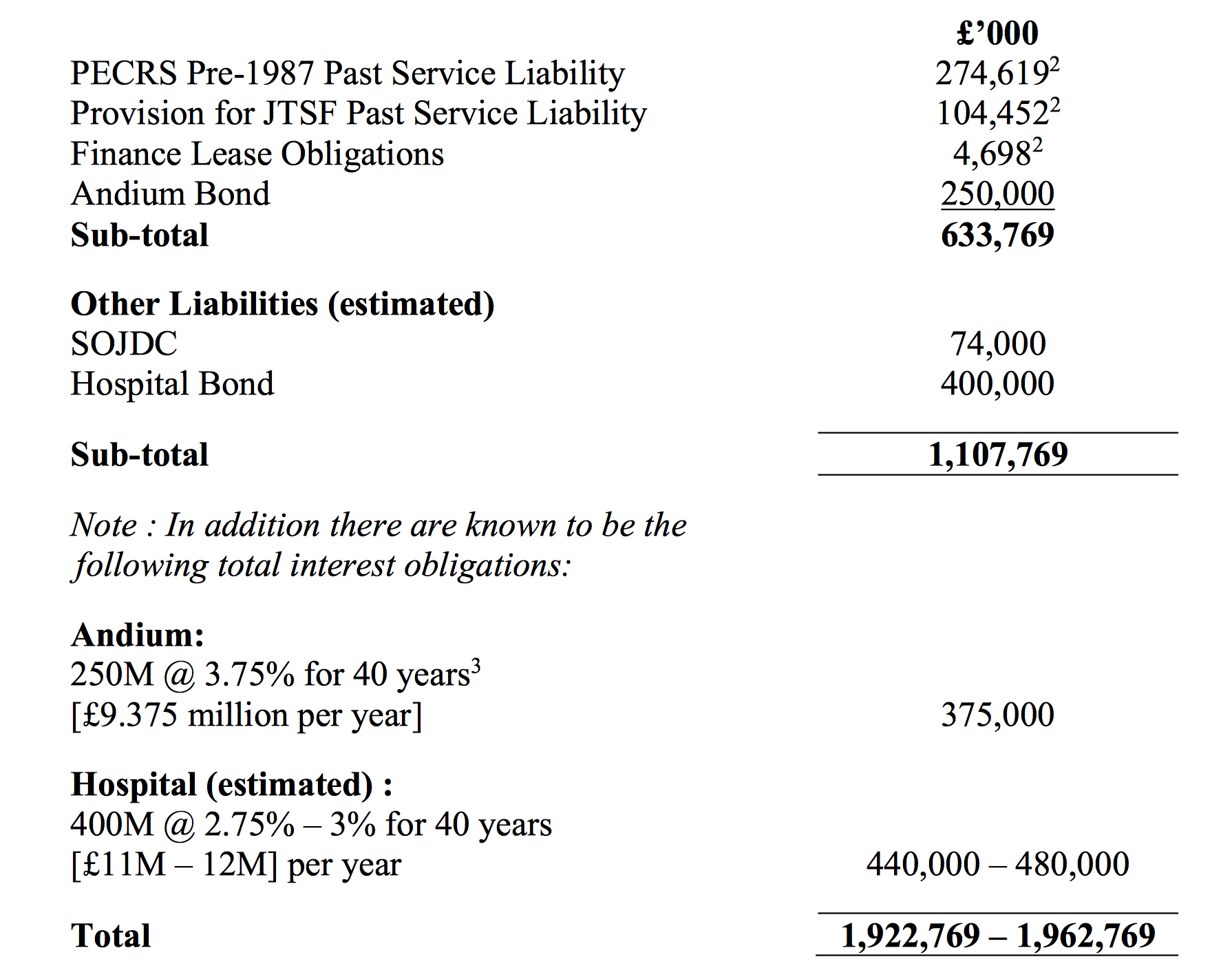

The Treasury Minister has made an '11th hour' U-turn on plans to fund the new £466 million hospital by borrowing £400 million amid fears from States members and finance experts that the plan was too risky.
The heavily-delayed debate into whether to finance the major project through borrowing, from the Island's ‘rainy day fund’, or from a mixture of both was due to start today, following a significant 'hiccup' in January which saw the debate fall into disarray after Deputy Tracey Vallois asked if the Treasury's plans would push the Island's total borrowing above legal limits. But it has now been put off for a further two weeks, while States Members think about the Treasury's new plan.
The Treasury Minister Senator Alan Maclean told the States this morning he intended to change his former proposal to finance the hospital with a £400 million bond supplemented by the ‘rainy day fund’, and instead set a borrowing limit to a maximum of £275 million – apparently heeding the advice of expert reviews that the States might struggle to pay off their debt given that Strategic Reserve investment returns might be affected by unexpected economic shocks like Brexit.
Senator Maclean’s original plans would have seen the full cost of that bond serviced over 40 years at cost (capital and interest) between £840million and £880million, depending on the interest rate.
Following a review, the Corporate Services Scrutiny Panel put forward an amendment giving the Island's politicians the option of paying for the hospital from the Island's own reserves. They warned that too much borrowing now is risky, as it would leave no headroom for future borrowing – potentially taking a student loan system off the cards.
"The choice being presented is therefore to borrow £400,000,000 externally from the markets; or to use our own funds. This avoids having to repay £400,000,000 of capital AND over £400,000,000 in interest over the period, but requires a commitment to a small annual payment in order to top up the capital balance. The Panel considers this to be a more far-sighted and prudent strategy, which acknowledges the inherent dangers of borrowing large sums of money, exacerbated by the uncertain economic climate in which we find ourselves."
They have also warning that the Island has a significant level of liabilities already:

But the Treasury Minister has said that using the Island's reserves to such an extent would remove our safety net: “In 2022, if the Panel’s amendment is adopted, the Strategic Reserve balance is forecast to be £577.7 million, when its protected balance should be £828.5 million. The Panel’s logic is difficult to fathom and the Minister cannot, in all good conscience, endorse a proposal that risks the Island’s stability to this extent,” he wrote.
The debate has split local finance experts, with the financial columnist in this month's edition of Connect magazine warning that returns from the Strategic Reserve may not be sufficient to meet the Treasury's requirements:
"If the rate of inflation returns to Jersey’s long-term average, for the value of the Strategic Reserve to maintain its long-term inflation adjusted value, and to meet the debt servicing costs of the new bond issue, it will need to generate a return of 5.5%. The investment managers’ of the fund believe that it will generate 5%.
"However when the bond issue proposition came before the States for approval, the Treasury Minister informed the house that the interest and capital costs would be met by the excess returns generated by the fund, because ‘the average return from the fund over the last 10 years had been 7%'.
"Bottom line, we appear to be committing to meeting our long-term bills from returns that are 2% above what the experts we employ to achieve those returns believe we will achieve."
In a report published today, the Chartered Institute of Public Finance and Accountancy (CIPFA) found fault with both approaches, stating that a “blended approach” of £200 million borrowing (half the Treasury Minister’s present proposal) and the rest via the States’ safety net, might be the best way forward.
The long-awaited debate will begin this afternoon, with States members due to decide this week.
Comments
Comments on this story express the views of the commentator only, not Bailiwick Publishing. We are unable to guarantee the accuracy of any of those comments.